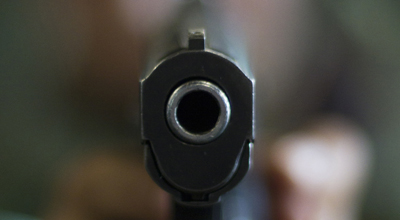Almost half of the 67 journalists killed worldwide in 2012 were targeted and murdered for their work, research by the Committee to Protect Journalists shows. The vast majority covered politics. Many also reported on war, human rights, and crime. In almost half of these cases, political groups are the suspected source of fire. There has been no justice in a single one of these deaths.
CPJ Special Report
• Journalist deaths
spike in 2012
This year, 12 nations made CPJ’s Impunity Index, a shameful list of countries where journalists are routinely murdered and their killers go free. Data published today shows that in six of these countries there were new murders throughout the year.
This is how each of the countries on the Impunity Index fared over 2012:
- Iraq: In a country with an impunity rating far worse than anywhere else in the world, there were no new murders this year. However, justice has not been served in a single one of the 92 murders recorded by CPJ over the past decade.
- Somalia: The country’s internal conflict appeared to be ebbing as the Islamist militia Al-Shabaab was largely ousted from the capital, Mogadishu, in 2011. But 2012 was the deadliest year for Somali journalists on record. With a total of 12 murders, the highest number worldwide this year, President Hassan Sheikh Mohamud said his government would create a task force to investigate the crimes.
- Philippines: Radio broadcaster Christopher Guarin was the one journalist confirmed murdered for his work in the Philippines this year. He was shot in front of his wife and daughter on a street in the southern Philippine island of Mindanao, where in 2009 the single deadliest attack on the press took place. With the world watching, the prosecution of the brutal Maguindanao massacre has moved sluggishly as victims’ families have been threatened and witnesses killed.
- Sri Lanka: No journalist was killed in Sri Lanka in 2012. The last documented murder in the island was that of newspaper editor Lasantha Wickramatunga, who died in January 2009 after being beaten with iron bars and wooden poles. Though President Mahinda Rajapaksa publicly promised to investigate the killing, no progress has been made to date.
- Colombia: For the second consecutive year, there were no journalists murdered in Colombia, traditionally a deadly place for the press. However, CPJ found that journalists faced resurgent violence from illegal armed groups over the course of the year.
- Nepal: There were no murders of journalists in Nepal in 2012. Following a May mission to the country, CPJ and a dozen other international groups released a special report on the current situation for the Nepalese press. The report called for transparent investigations into the murders of six local journalists over the past 10 years.
- Afghanistan: There were no new murders of journalists in Afghanistan for the fifth consecutive year. No other country on this list has seen targeted killings recede continuously for a comparable period of time. However, concerns for the security of journalists and stability of the local press persist as NATO forces prepare to withdraw.
- Mexico: In 2012, no journalist was murdered in direct retaliation for his work in Mexico, although one was killed on a dangerous assignment, and CPJ is looking into the deaths of another five journalists in order to determine whether they were targeted for their journalism. With close to 90% impunity in the killings of journalists and an encouraging step forward in legislation, all eyes are on new President Enrique Peña Nieto to ensure prosecutions in the cases of murdered journalists, and provide protection for those still working.
- Russia: Twenty eight year-old Kazbek Gekkiyev was shot and killed late in the year in Russia’s volatile North Caucasus. Over the past 10 years, at least six other journalists have been killed in the region for their work. In no cases have the perpetrators been prosecuted. President Vladimir Putin ordered investigators to bring the Gekkiyev’s killers to justice immediately after his death.
- Pakistan: This year, Pakistan ranked second highest worldwide for journalist murders. The five victims worked for different outlets in different parts of the country. However, they all covered politics, while many also reported on crime and war. This month, a special seven-part report on the issue of impunity in journalist murders appeared in The News on Sunday. “It is not just about us; the crimes against journalists are a reflection of the society we are shaping,” the lead editorial said.
- Brazil: Four journalists were murdered for their work in 2012 in Brazil. In all cases, they reported for Internet publications. The number of lethal attacks on journalists has steadily escalated over the past three years in this nation.
- India: For the first time since 2008, a journalist was murdered in India. Like 190 journalists murdered around the world since CPJ began keeping track in 1992, Rajesh Mishra reported on local corruption. Police arrested at least six people in connection with his killing. There have not yet been any convictions.
CPJ will follow up the tally of 2012 murders and prosecutions with the release of a new Impunity Index early next year. Things to look for in the new publication are slow but somewhat encouraging steps in the Philippines and Russia, as well as the distressing addition of a new country to the list.
